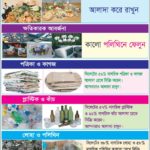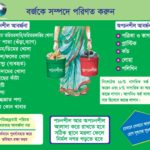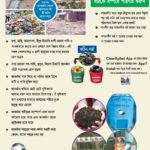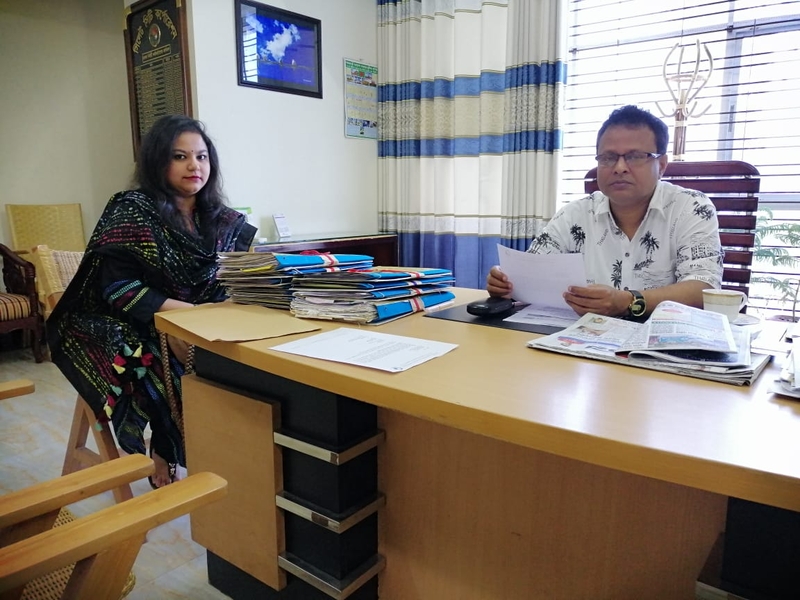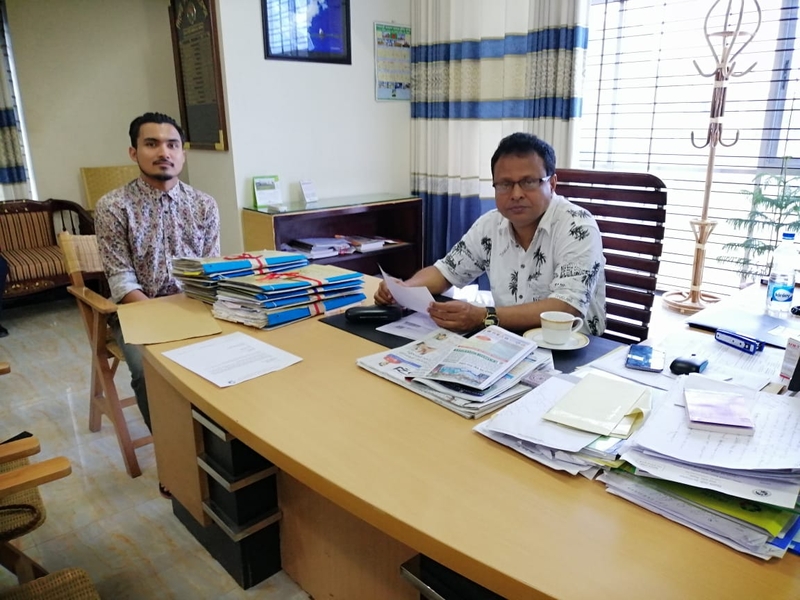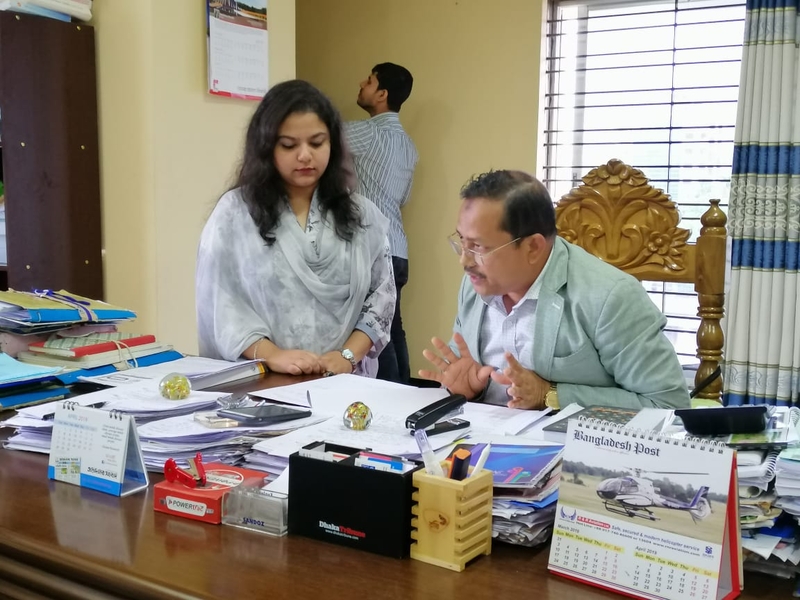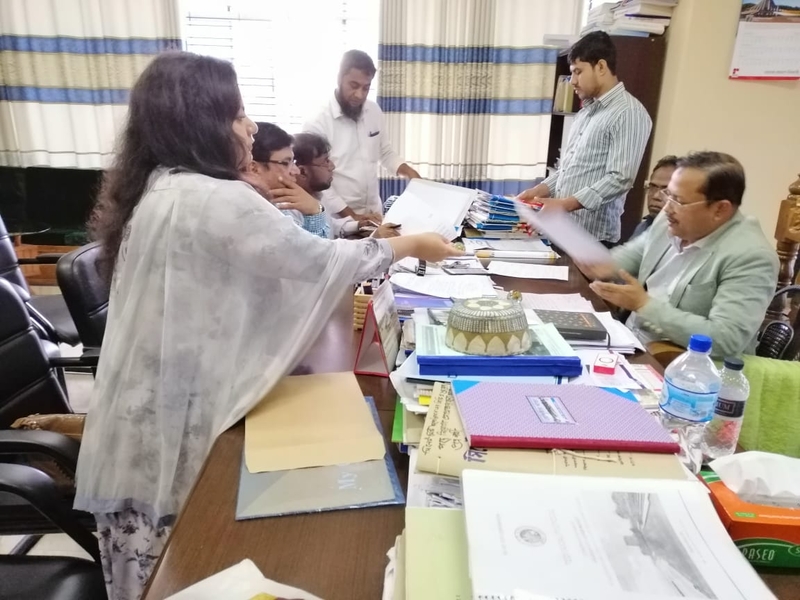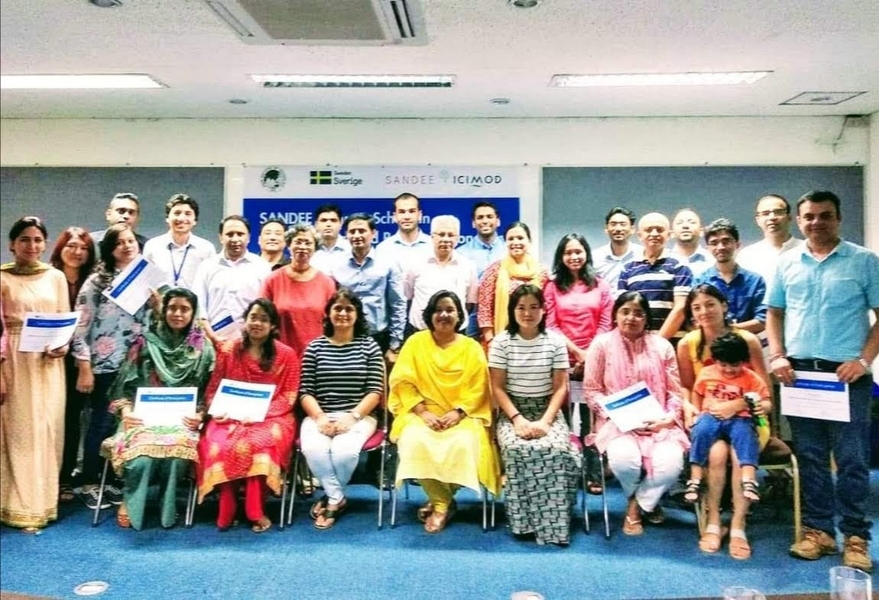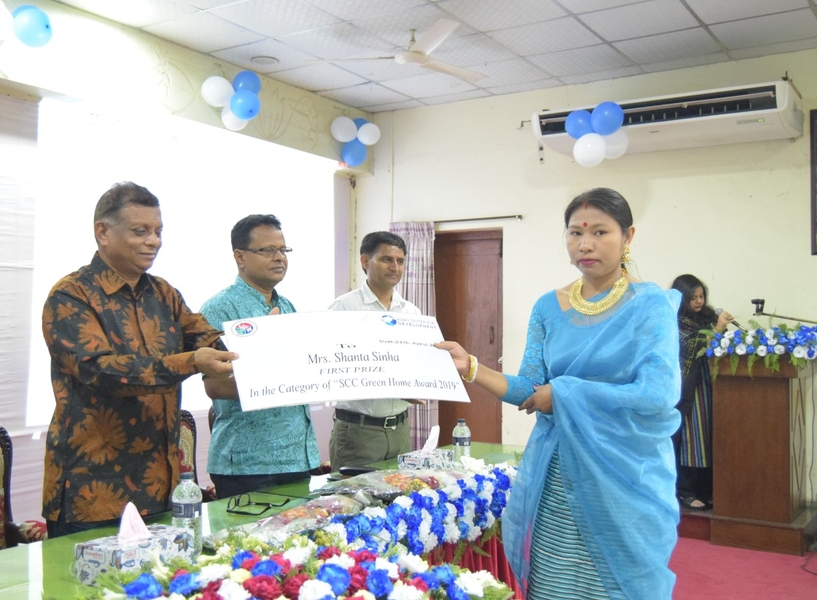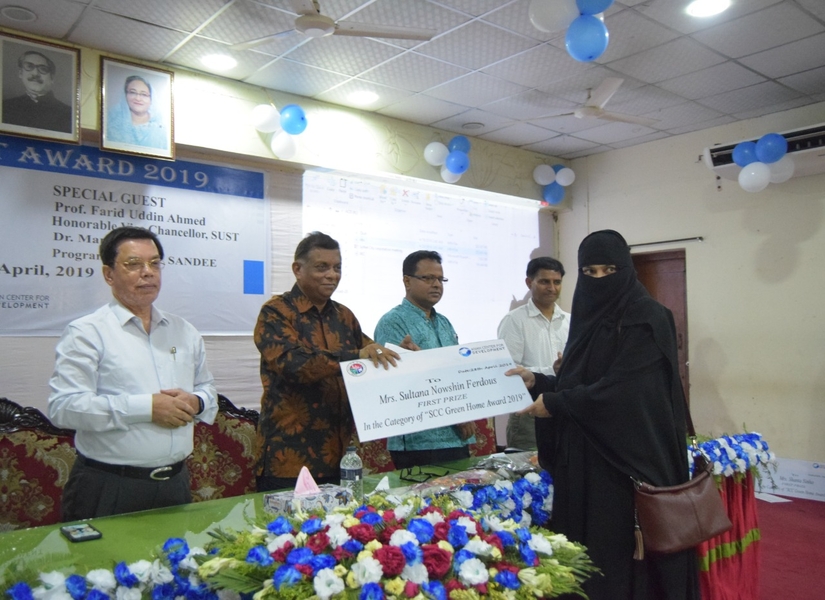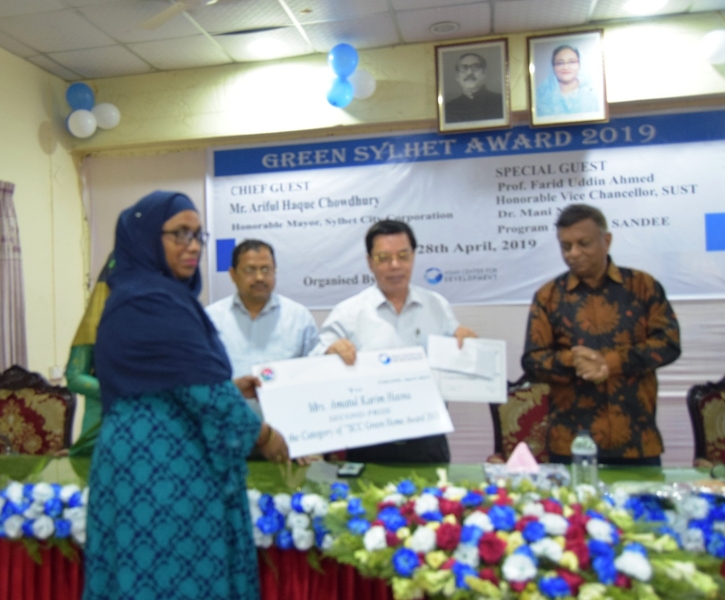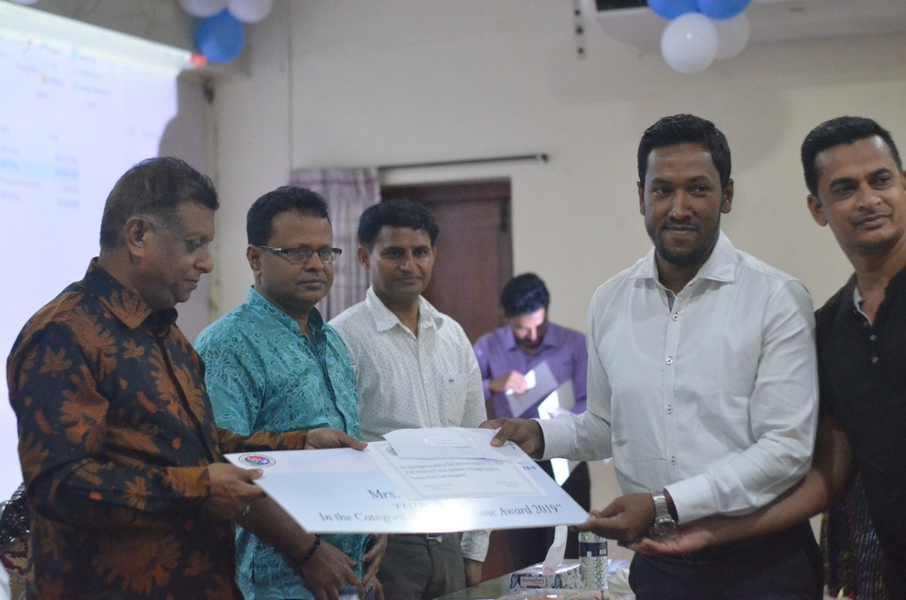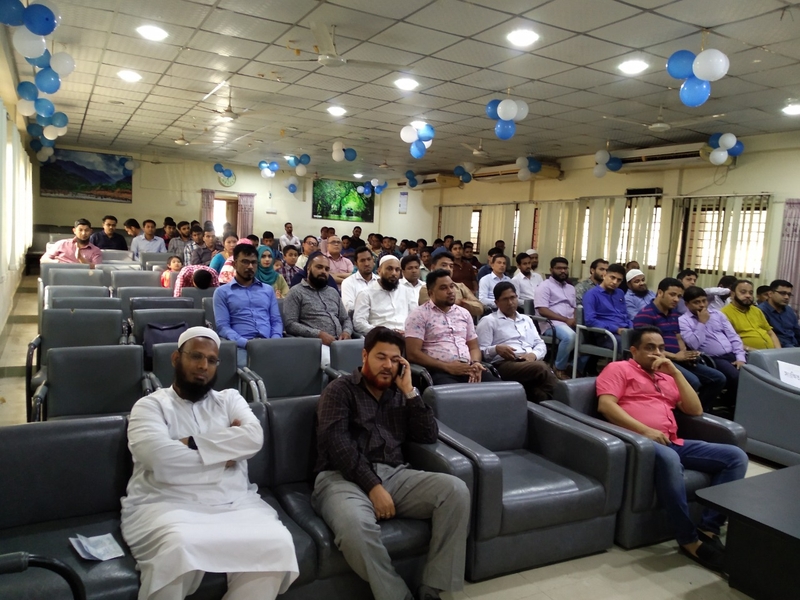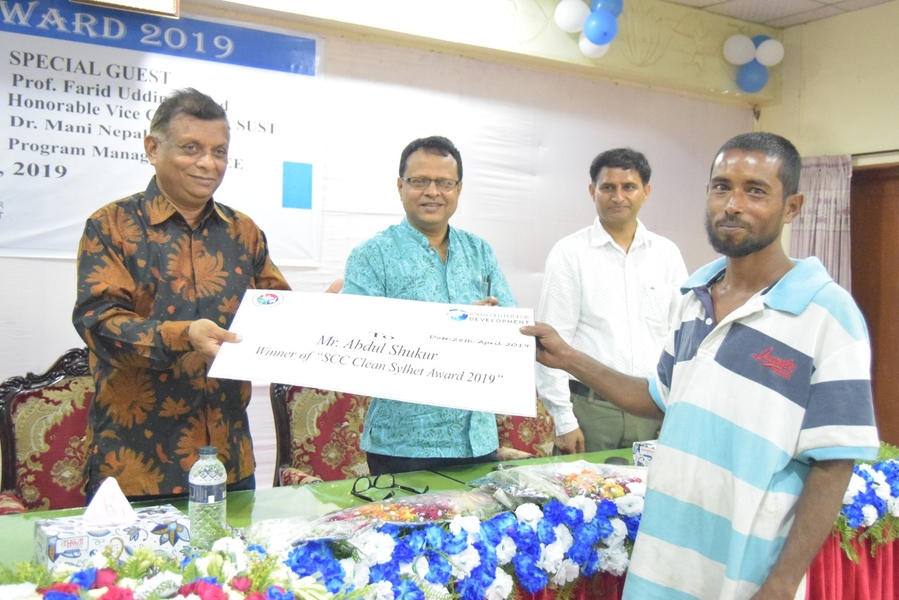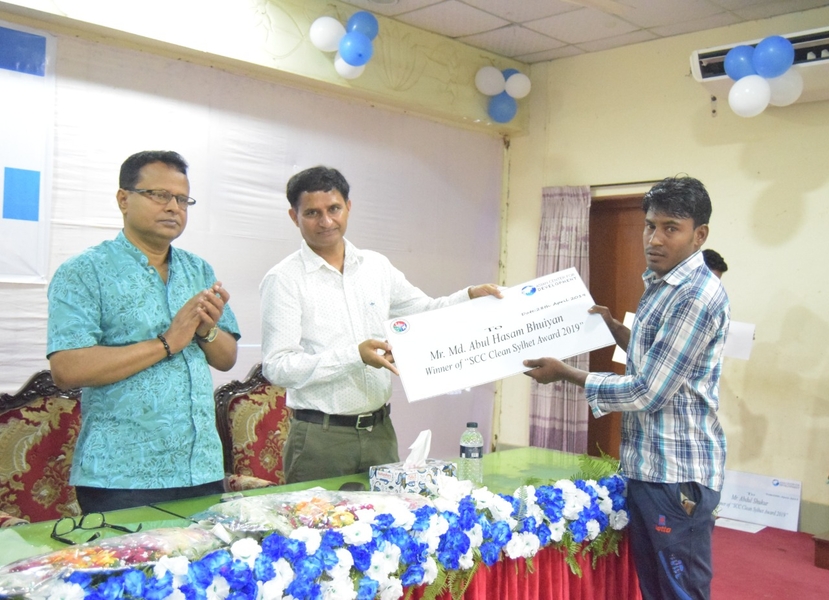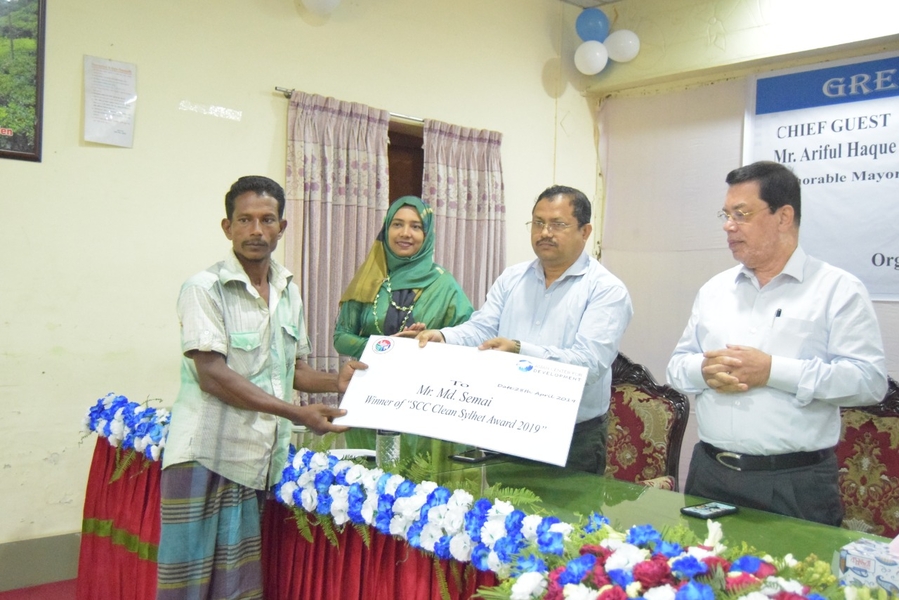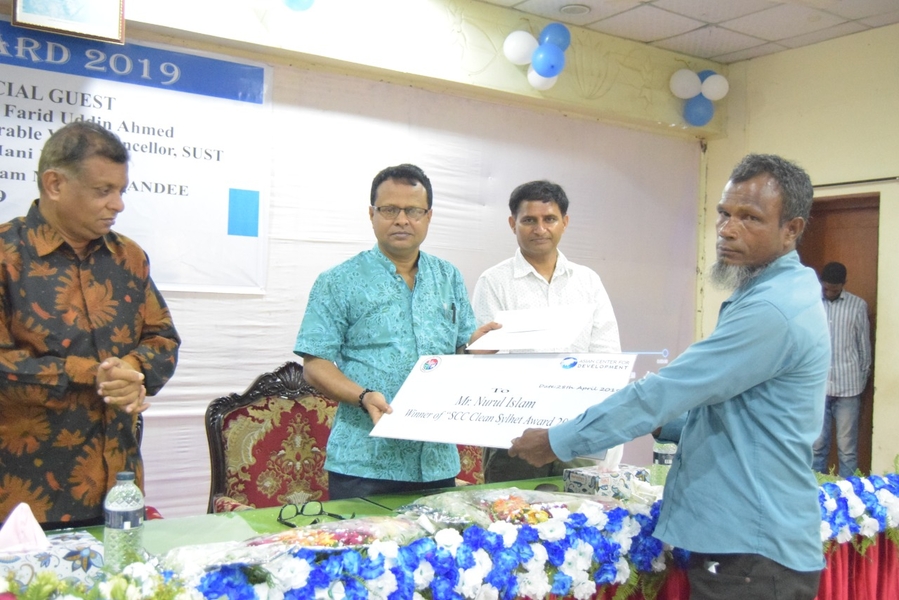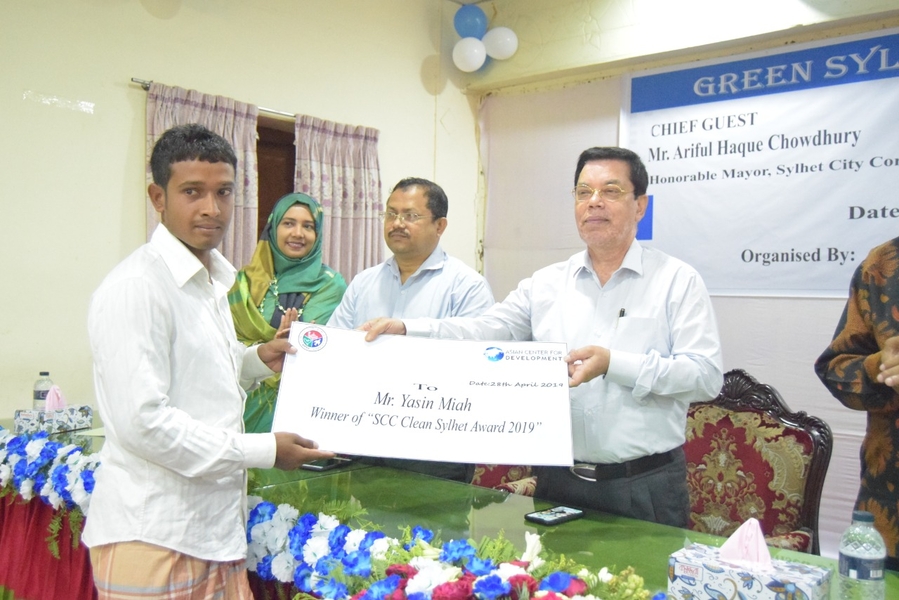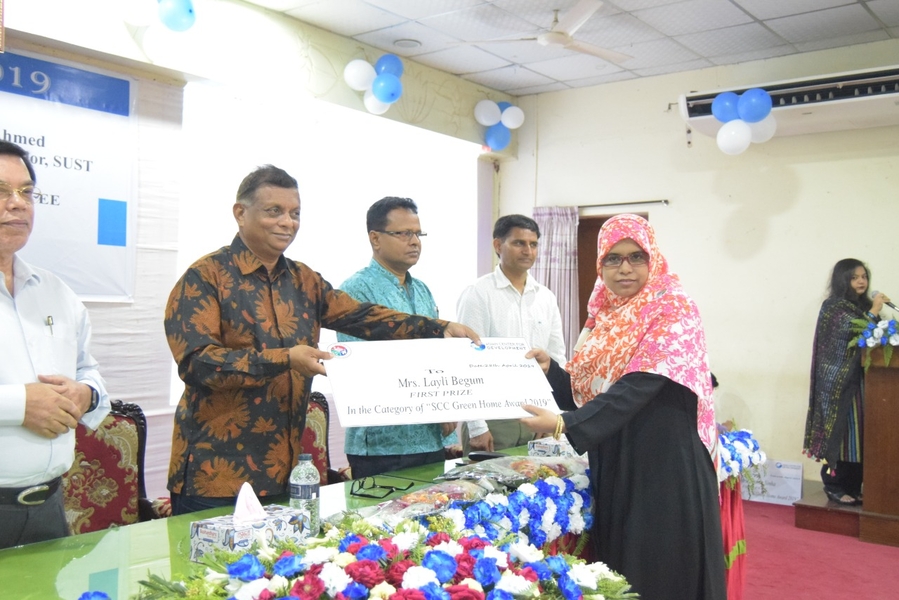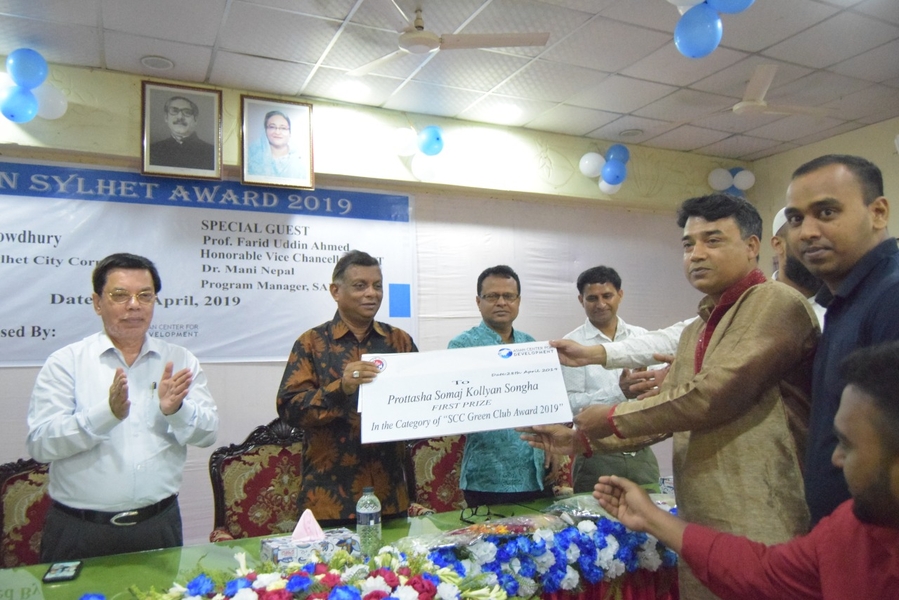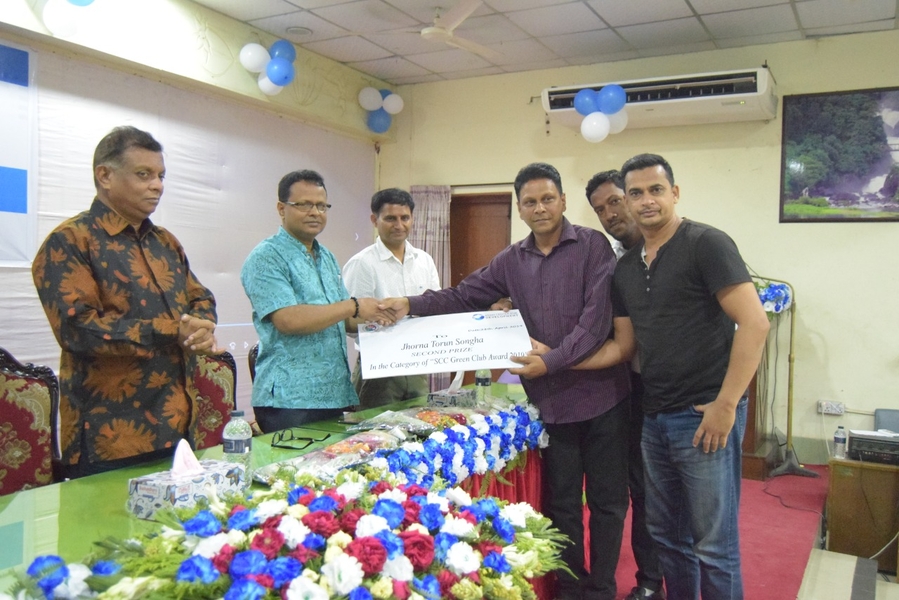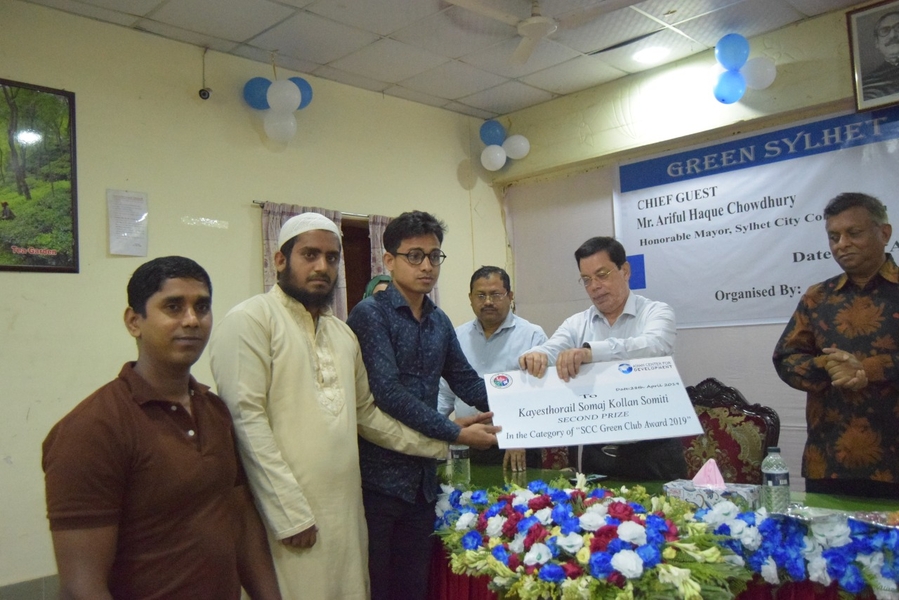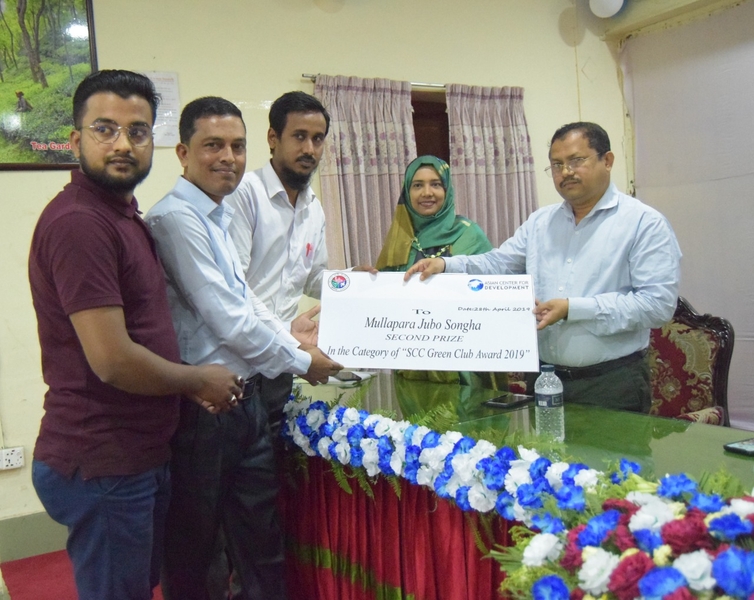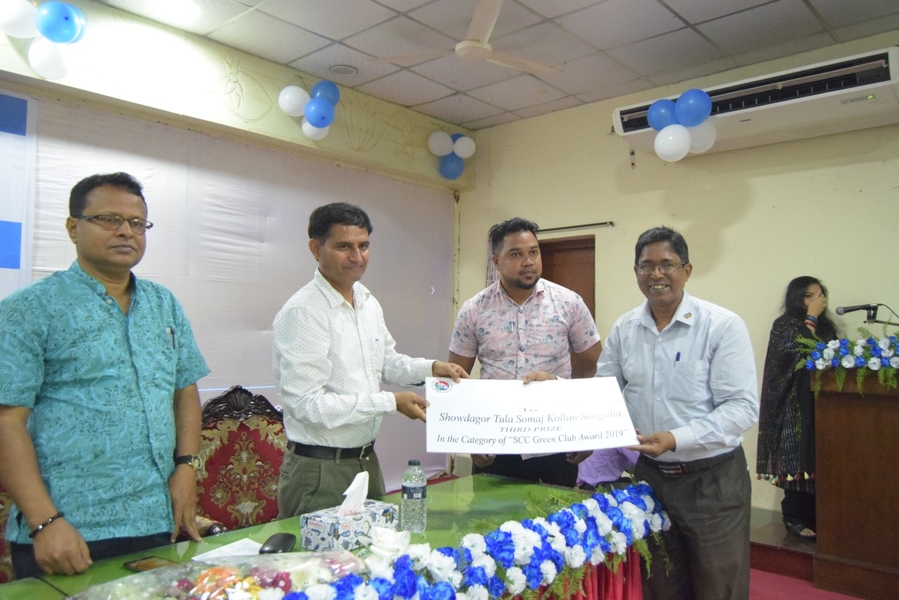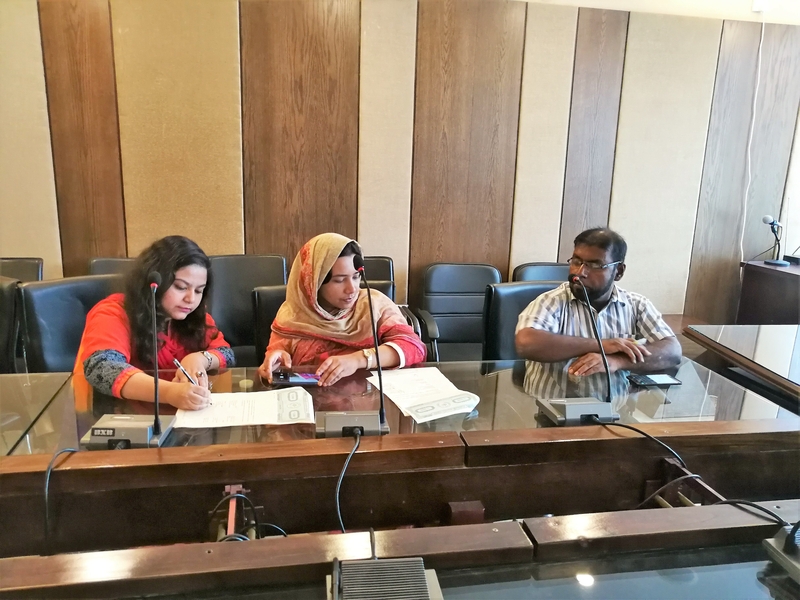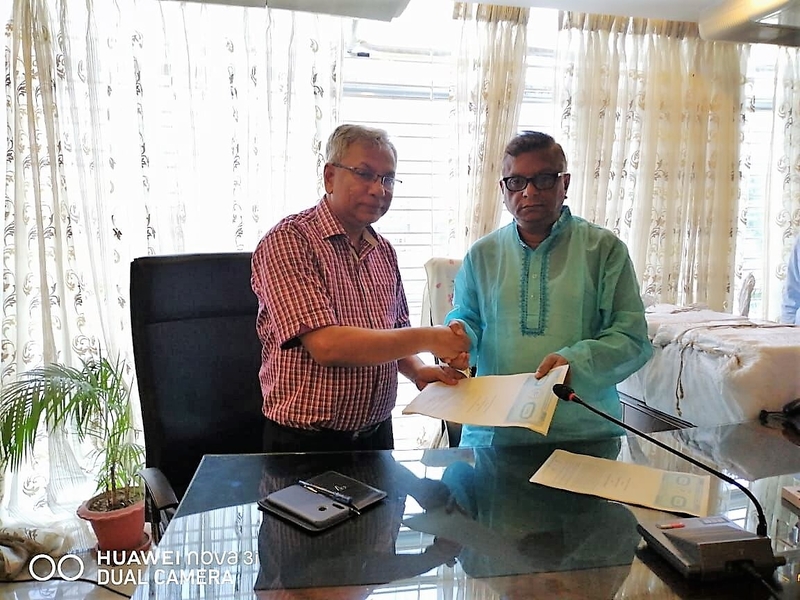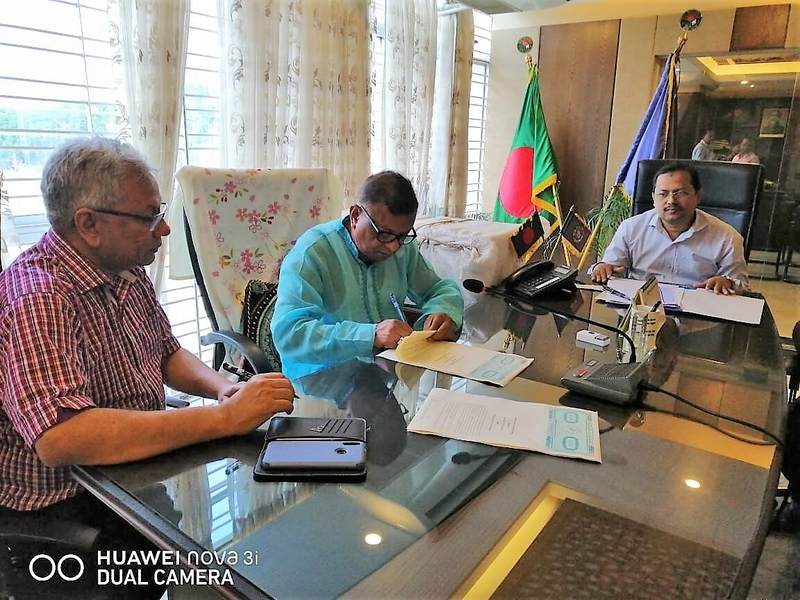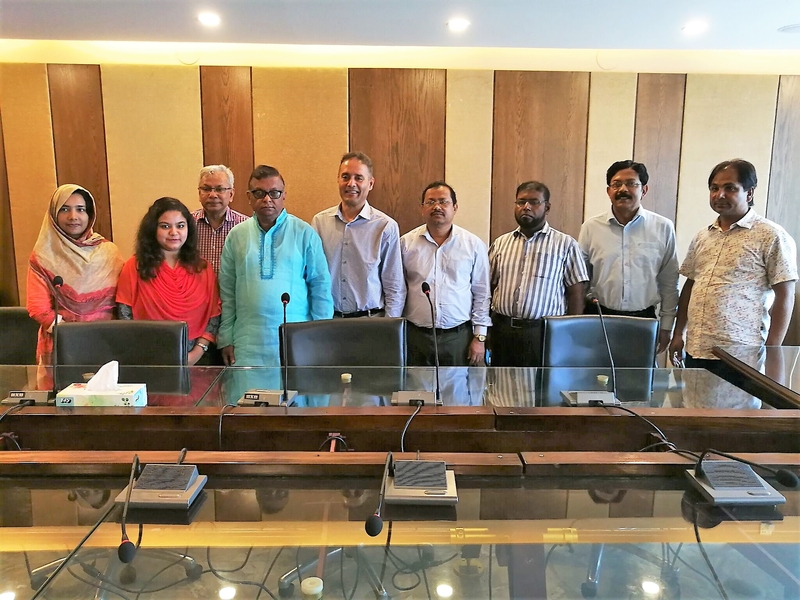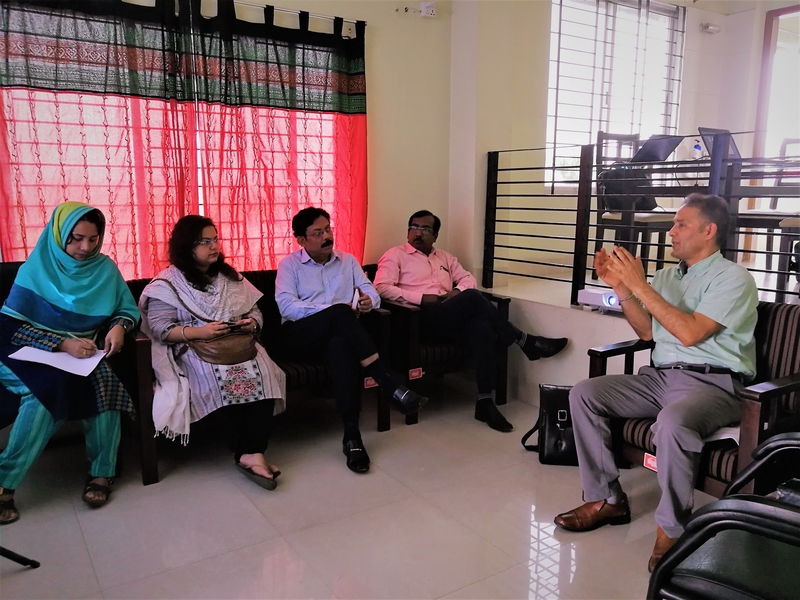The Economics of Solid Waste Management and Drainage: Sustainable Approach to Making South Asian Cities Climate-Resilient (2017-2019)
Events Scholarship Achievements Reports Documents Minutes Research Brief
Most fast-growing cities in South Asia face increased waterlogging and water contamination from improperly managed solid waste. Extreme weather events, including floods, droughts, are expected to further aggravate the operation of water-supply, drainage, and sewerage infrastructure. Protecting cities requires reducing waste and improving waste collection, investment in drainage, replacing riverside and wetland dumping with engineered landfills, and identifying sustainable mechanisms to finance waste management.
Amongst the many threats from climate change in South Asia, responding to flooding and extreme rain events is a priority for cities. The effects of climate-driven heavy rainfall and storm surges are exacerbated in urban centers because of inadequate drainage systems. Exposed cities are at risk from immediate costs from losses in life, assets, and productivity and by the disease outbreaks from waterlogged drains and contaminated drinking water. To enable waste to be managed under circumstances of extreme or frequent flooding and heavy rainfall, cities will need to become more resilient (WHO 2009). This proposal increases the resilience of municipalities in three ways: a) identifying ways to reduce the quantity of waste per capita, b) enabling cities to improve their revenue collection; and c) enabling municipal staff to adapt to climate change by making better system-level decisions based on tools such as GIS and hydrological modeling. The proposal identifies ways to reduce and reuse waste and increase revenue collection. Furthermore, it reduces the carbon footprint of the cities and so contributes towards a mitigation solution (Bangladesh Climate Change Strategy and Action Plan (BCCSAP), for example, envisaged that through promoting city waste management it is planning to reduce emissions which are also mentioned in the NDC documents of Bangladesh and Nepal.
Project Objectives
Project General Objectives: to create the knowledge needed to improve the capacity of South Asian cities to address the issues of solid waste, waterlogging, and flooding; and to improve the resilience of these cities to climate change through improved waste management and hydrological management which are expected to get worse with climate change and urban growth. Specific objectives are:
(1) Understand what incentives and systems can be used to induce households and other establishments to consistently segregate waste so as to reduce the collection burden on municipalities and enable more comprehensive and cost-effective composting and recycling arrangements. Waste-disposal in households is usually managed by women on a day-to-day basis, but they would often not be able to decide on financial matters, such as the payment of collection charges, on their own. Gender roles in household decision-making will be studied for the appropriate provision of incentives for waste segregation.
(2) Provide evidence using a drainage network model on the extent to which waste segregation and improved solid waste management can obviate the need for additional physical investments – a potential benefit from the soft intervention.
(3) Pilot and study sustainable schemes for segregation and conversion of wastes into ‘organic fertilizer/energy’ products for poor local communities using a cost-benefit analysis.
(4) Identify how improvements to solid waste management systems can be financed in a sustained manner. Specifically, (a) inform cities on how much residents are willing to pay in taxes and/or fees in return for improvements in drainage and waste services, and (b) understand how much taxation of goods such as plastics, combined with deposit refunds in some cases, can both reduce non-recyclable solid waste generation and provide revenue to finance cities’ solid waste management.
(5) Engage the municipalities and local communities to reduce total solid wastes and to improve the drainage management system to deal with water-logging and help them replicate across different areas within the municipalities.
Theory of Change
Figure 1, illustrates the theory of change or flow diagram that how the project will augment the city solid waste management in order to reduce pressure on city drainage system and in the meantime how it can help local residents to have organic fertilizer that will create more jobs providing income-generating activities while converting wastes to fertilizer.
Figure 1: Theory of Change: Existing and Modified Solid Waste Management System to deal with climate risks
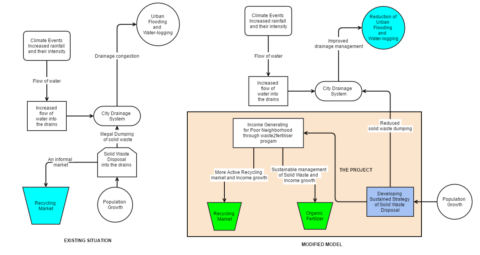
Three Cities
The three cities included in this study are Bharatpur, Kawasoti, and Sylhet. All of them are located on river banks in flat lands close to the hills. These cities face threats from climate change induced extreme rainfall, flooding and waterlogging (Ministry of Environment, 2010; Roy 2013). As is typical of cities in low-income countries, the cities struggle with inadequate municipal planning, in-efficient drainage and wrongly-placed landfill sites (Lamond et al., 2012).
Local Context
Bharatpur and Kawasoti Municipalities, Nepal
Bharatpur is in Chitwan district and nearby Kawasoti is in the adjoining Nawalparasi district in the central Nepal Terai. Bharatpur ’s population of nearly 200,000 is growing rapidly at a rate of 5% per year. Kawasoti municipality was recently established and is growing fast with a population of 62,000 in 2011. Chitwan district is ranked ‘high’ in Nepal for climate change induced flooding and ‘very high’ for overall climate risks (Ministry of Environment, 2010). In 2008, Bharatpur generated more than 32 tons of solid waste per day, 80% which was organic, 8% in recyclable plastics, iron and other materials and only 12% required to be landfilled. However, in the absence of segregation at source, the municipality spends over 15% of its annual budget on solid waste management (Asian Development Bank, 2013). The collection is by private-sector partners on a fee-for-service basis that leaves out low-income households. Less than half of the waste generated is collected (Asian Development Bank, 2013), reflecting the fiscal weakness of the municipality and signaling that this system needs help to become climate resilient. Uncollected waste clogs the drainage system and pollutes both ground and surface water. Notably, Bharatpur relies entirely on groundwater for drinking supplies (some 52% of households obtain tap water from the same source (Central Bureau of Statistics, 2014). Thus, any climate induced flooding and water contamination with solid waste will have serious negative implications for drinking water and health. Kawasoti faces similar issues but has no municipal waste collection system as yet. (Our private-sector partner National Waste Management and Recycling Centre Pvt Ltd will start collecting segregated waste in Kawasoti under contract with the municipality later this year.) Residents dump the waste in open areas and/or burn it, causing air pollution.
Sylhet City Corporation, Bangladesh
Sylhet in Bangladesh has 500,000 residents and is one of the fastest growing cities in the country. The city’s 450 km of cemented drains and 520 km of earthen drains channel rainwater from the city to the Surma River. Estimates suggest that around 200 tons of solid waste is generated in Sylhet City every day, while the city has the capacity to collect only 150 tons. The City spends approximately 3% of its budget for solid waste management. However, this budget and the drainage system is wholly inadequate, and a large part of the city frequently goes under water during heavy rainfall events. Between between 1983 to 2012 Surma River stages crossed the danger level 20 times. The largest duration above danger level was 22 days in 2004. The high flood stages have significant influence on drainage of Sylhet city. On September 02, 2015 Sylhet city suffered major water logging. Extensive areas of the city were inundated. From records of FFWC, BWDB it is seen that on September 02, 2015 the water stages of Surma at Sylhet were above danger level by 0.49 m. Also significant that 324 mm rainfall occurred in 48 hours which is near to 60% of average rainfall of Sylhet in September.
Over the years, Sylhet city has expanded into neighboring wetlands. These low-lying areas are generally settled by poor households. With more intense and heavier rainfall, the city’s current episodes of water-logging will further increase, with the most likely strongest negative impacts on households settled in low-lying areas.
Expected Results
The project is well placed to facilitate innovative partnerships between city government and the private sector for solid waste management systems. The findings of the research will inform city level solid waste management practices in Bangladesh and Nepal, and will, thus, inform further policy debates and choices. The potential outcome would be evidence-based solid waste management policies and tested financing instruments that could be replicated and applied in other cities. Another outcome of the project will be the improved capacity of the cities under consideration to manage solid waste in the context of climate change. Major outputs/outcomes include:
- 5 peer-reviewed publications on topics related to economic analysis, GIS modeling, fiscal instruments to reduce waste and financing waste management
- Policy-oriented outputs such as policy briefs, policy dialogues and seminars, blogs, and other dissemination activities around urban solid waste management for more climate adaptive improvements.
Tested methods for economic analysis of urban solid waste management that could be replicated and applied in other cities.
Project Team
SANDEE
Dr. Mani Nepal (PI)
Mr. Rajesh Rai (Environmental Economist)
Mr. Bishal Bharadwaj (SANDEE Associate)
Asian Center for Development
Dr. A. K. Enamul Haque (Executive Director, ACD) – Co-PI
Dr. Muntaha Rakib (Climate Specialist)
Research Assistants
Ashraf Mian (East West University)
Nabila Nuzhat Hye (Shahjalal University of Science & Technology)
Institute of Water Modelling (Research Partner)
Mr. S M Mahbubur Rahman, Director, Water Resource Division
Ms. Ismat Ara Pervin, GIS Modeler
Collaborating Partners
Bharatpur Sub-Metropolitan City, Nepal
Mr. Mahesh Baral, Executive Director, Bharatpur Sub-Metropolitan City, Nepal
Solid Waste Management Technical Support Center, Nepal
Mr. Bishwamani Gyawali, Executive Director, Solid Waste Management Technical Support Center, Ministry of Urban Development, Nepal
Sylhet City Corporation, Bangladesh
Chief Executive Officer, Sylhet City Corporation

